INTRODUCTION
According to the National Institutes of Health (NIH), protein, popularly known as the building block of life, is a molecule made up of amino acids and serves a great deal in the body. It helps with cell repair and the building up of new cells, preserves muscle, keeps bones strong and much more. It is also the part of the essential nutrients of human nutrition known as the macronutrients, such as carbohydrates and fats.
Unfortunately, a lot of people fail to meet their daily protein intake which is 0.8g/kg body weight per day which is based on most countries diet guidelines. A study by the National Health and Nutrition Examination of over 11,000 adults in the U.S showed that 1 in 3 adults are not getting the daily recommended protein their bodies need. These studies are also based on the average population, and not on athlete or those wishing to perform better or lose fat more efficiently. According to the International Society of Sports Nutrition (ISSN) Position Stand, “Protein & Exercise” for optimal building and maintaining lean muscle tissue is 1.4g – 2.0g of protein per kg of bodyweight.
More can be read here on the ISSN Position Stand. https://jissn.biomedcentral.com/articles/10.1186/s12970-017-0177-8
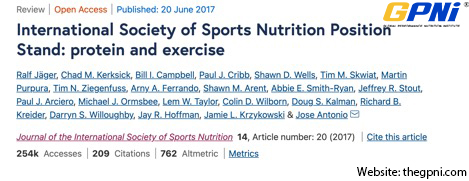
The cause of this low protein diet can be linked to several myths on protein intake which have discouraged many people from taking as much as the body needs. And even more so needed by older people because as the body ages, it needs more protein intake to function as it should.
Why Do We Need Protein?
Proteins provide the 20 amino acids the body needs to build new proteins to stay healthy.
Our bodies cannot produce 9 essential amino acids and so these are gotten from food. They are:
- Histidine,
- Leucine,
- Tryptophan,
- Valine,
- Threonine,
- Lysine,
- Methionine,
- Isoleucine, and
- Phenylalanine.
Animal protein provides all 20 of the amino acids needed in the body while plant-based protein has some vital amino acids. Although, a proper combination of plant-based foods can give the right amount of amino acids the body needs.
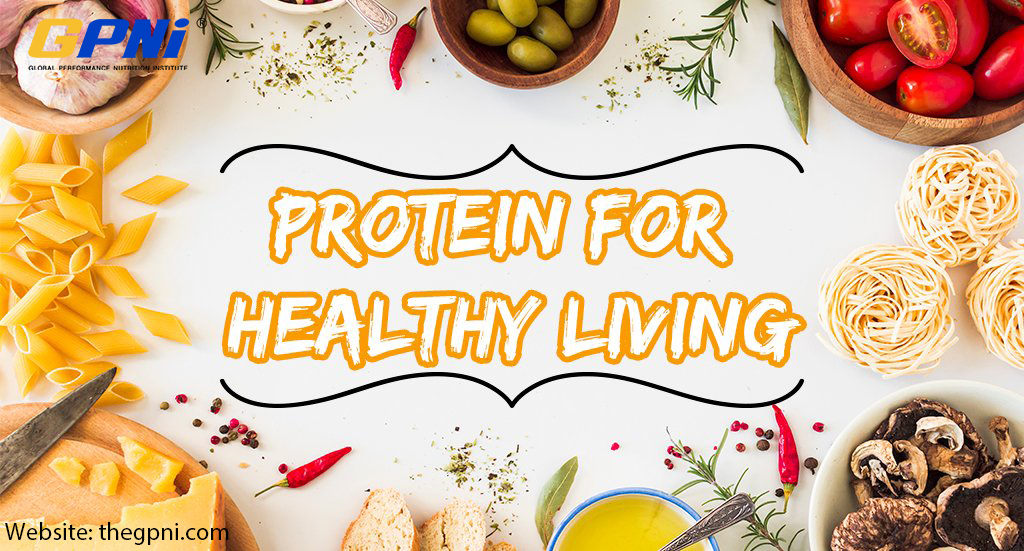
The key is to choose proteins wisely and balance them.
Popular Myths Debunked
Myth One: Protein Won’t Get Used Efficiently Unless It’s Dosed Sparingly Throughout The Day
It is wrong to assume that any excess protein of over 20-30 g is expelled by the body. Even though there is a limit to how much protein is effective per meal, the limit is similar to what is maximally effective the entire day. And the body can use a lot more than 20-30g an entire day and this depends on several factors.
Myth Two: You don’t need protein for breakfast.
Research proves the opposite of this. The body while sleeping is in a state of fasting and the first thing the body needs is a high protein breakfast. This is so protein gets transmitted to your muscles.
Myth Three: Protein gives you bad breath
A simple mouthwash will dispel bad breath. This is no valid reason to discard eating protein, as well as almost never occurs. Onions and garlic will do far more to promote breath than protein!
Myth Four: Overfeeding On Protein Makes One Add Weight
Eating a lot of protein accounts for energy expenditure and lean body mass but doesn’t lead to an increase in fat. A combined diet of carbs, fat, and protein will lead to an increase in both muscle and body fat.
Read more here: https://www.theissnscoop.com/gluttony/
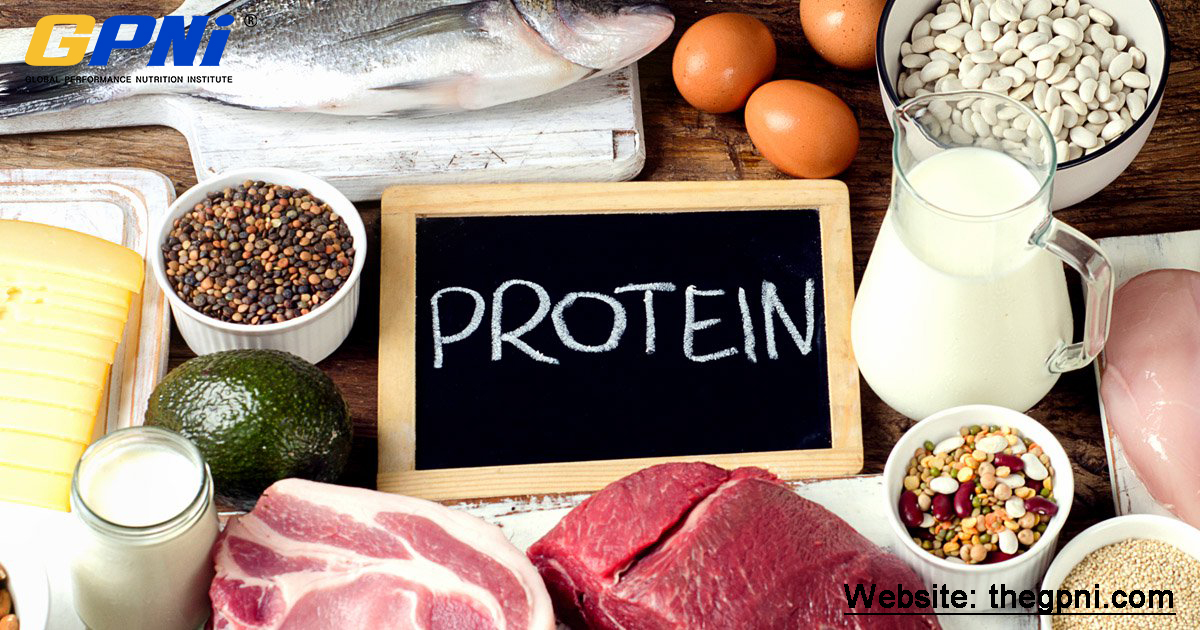
Myth Five: All Protein Is The Same.
As much as there are plant-based proteins, they do not deliver the same amount of essential amino acids animal protein delivers to the body. Many plant based proteins are not complete protein missing key amino acids for adequate building and recovery of muscle tissue.
Myth Six: Eating Too Much Protein Can Affect Your Kidneys
The fact about this is that a high protein diet does not have any harmful effect whatsoever on an individual’s renal function. There’s no evidence that proves it does. On the contrary, the most that can happen from eating too much protein is that you gain lean body mass, especially for athletes. And even taking less than 2.8g/kg of protein daily does not impair the renal function as well according to extensive studies by the ISSN.
What Protein Actually Does: Latest Scientific Research.
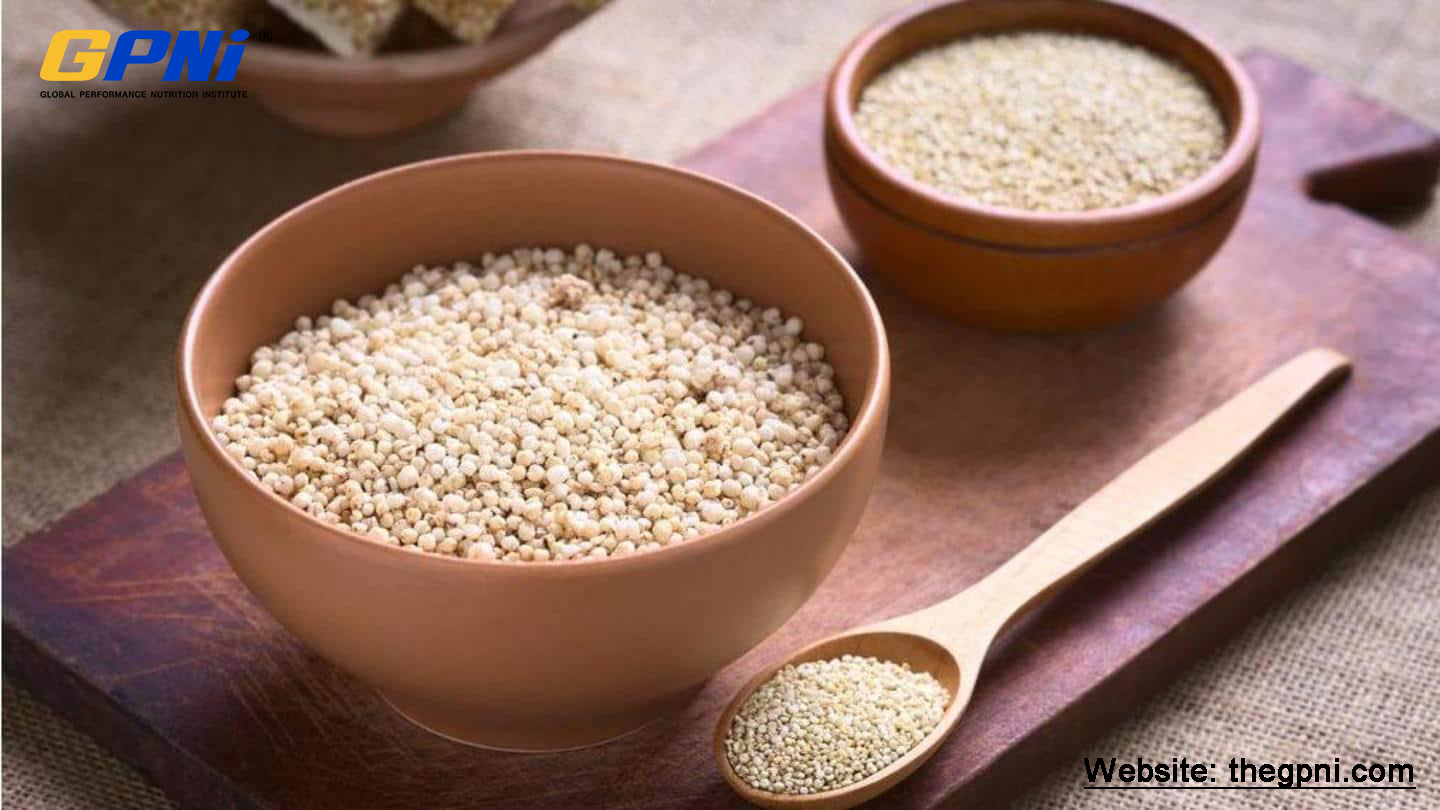
Based on the latest scientific research, the findings of the International Society of Sports Nutrition (ISSN) on protein and exercise are as follows:

Protein is a crucial exercise stimulus, particularly for resistance exercise. When protein is ingested, muscle protein synthesis (MPS) is stimulated. And it also creates a synergy when taken before or after resistance exercise.
Protein builds muscle mass and maintains muscle mass through a positive muscle protein balance. For this to happen, an overall daily protein intake in the range of 1.4–2.0 g protein/kg body weight/day (g/kg/d) is adequate. This is within the Acceptable Macronutrient Distribution Range published by the Institute of Medicine for protein.
New evidence shows that more protein intakes (>3.0 g/kg/d) may have positive effects on body composition in resistance-trained individuals (i.e., promote loss of fat mass).
Recommendations regarding the optimal protein intake per serving for athletes to maximize MPS are mixed and are dependent upon age and recent resistance exercise stimuli. General recommendations are 0.25 g of a high-quality protein per kg of body weight, or an absolute dose of 20–40 g.
Acute protein doses should strive to contain 700–3000 mg of leucine and/or a higher relative leucine content, in addition to a balanced array of the essential amino acids (EAAs).
These protein doses should ideally be evenly distributed, every 3–4 h, across the day.
The optimal time period during which to ingest protein is likely a matter of individual tolerance since benefits are derived from pre or post-workout ingestion; however, the anabolic effect of exercise is long-lasting (at least 24 h), but likely diminishes with increasing time post-exercise.
While it is possible for physically active individuals to obtain their daily protein requirements through the consumption of whole foods, supplementation is a practical way of ensuring intake of adequate protein quality and quantity, while minimizing caloric intake, particularly for athletes who typically complete high volumes of training.
Rapidly digested proteins that contain high proportions of essential amino acids (EAAs) and adequate leucine, are most effective in stimulating MPS.
Different types and quality of protein can affect amino acid bioavailability following protein supplementation.
Athletes should consider focusing on whole food sources of protein that contain all of the EAAs (i.e., it is the EAAs that are required to stimulate MPS).
Endurance athletes should focus on achieving adequate carbohydrate intake to promote optimal performance; the addition of protein may help to offset muscle damage and promote recovery.
Pre-sleep casein protein intake (30–40 g) provides increases in overnight MPS and metabolic rate without influencing lipolysis.
Foods Containing High Protein
Milk proteins: A lot of extensive research by Hartman JW, and others in their article, ‘Consumption of fat-free fluid milk after resistance exercise promotes greater lean mass accretion than does consumption of soy or carbohydrate in young, novice, male weightlifters’ revealed that consuming milk after exercise helps speed up recovery from muscle damaging exercise.
It also increases glycogen replenishment, improves hydration and improves protein balance to favor synthesis. And this ultimately results in increased gains in both neuromuscular strength and skeletal muscle hypertrophy.
Egg proteins: Eggs are easily digestible and a great source of protein for athletes. Although eggs have been said to have a lot of cholesterol, new developments have revealed that consuming eggs has nothing to do with coronary heart disease.
Studies show that one egg has 75 kcal and 6 g of protein and 1.5 g of saturated fat.
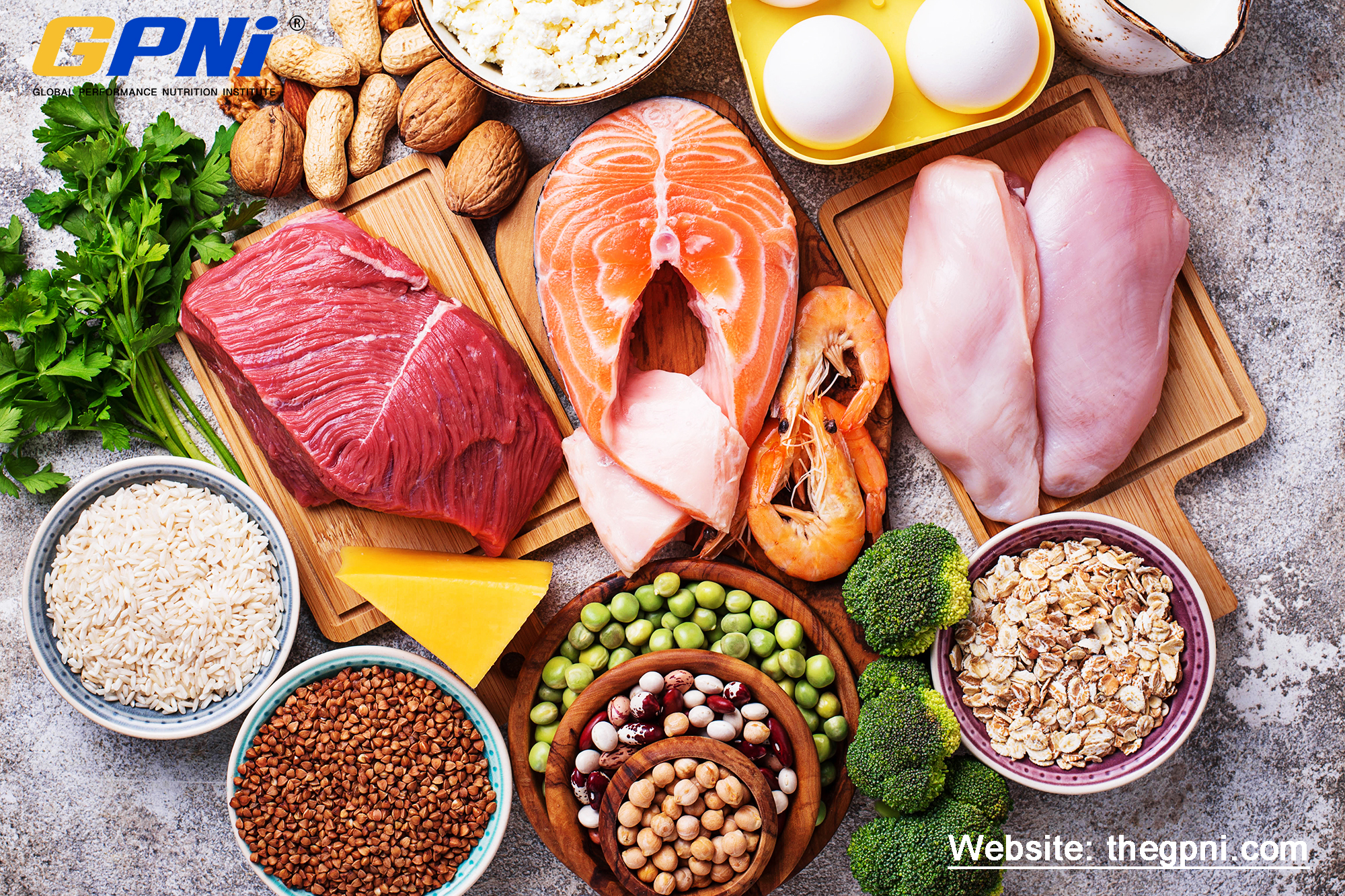
Athletes may need to add egg protein to their diet because research shows that they increase protein synthesis of skeletal muscles considerably. And eggs can easily be combined with other meals for breakfast, lunch, or dinner.
Beef And Other Flesh Proteins: A major component of the American diet is meat. Most people love meat, and it is readily available, however it contains varying amounts of fat and cholesterol.
A basic serving of 113.4 g lean beef gives 10 g of the essential amino acids (3.5 g of leucine) and 30 g of total amino acids. And it stimulates protein synthesis in both young and old people.
Conclusion
The need for protein in the body cannot be overemphasized. And the body needs all the protein it can get according to the most up to date research.
Getting access to the right information about protein is important if you are wanting to perform, recover and build better lean muscle. At the Global Performance Nutrition Institute (GPNi®) all our course content is based on the most up to date research, by the leaders in the industry. Whilst other sports nutrition certification may have some adequate information for everyday living, none offer, nor work with official the leaders in the industry and experts in assuring to provide the most up to date researched backed content. If you are wanting to be the best in your sport, or be the best trainer in your region, choosing the most up to date research backed and internationally recognised certification will be key.
At the GPNi® get internationally certified with the ISSN® Sports Nutrition Specialist (SNS®) certification with the most up to date course content together with experts teaching with “live tutorials” online globally now. Offering now in English, Chinese Mandarin and Japanese language in 2022. For more information, please email to ce**@*****ni.com or check out the website www.thegpni.com
References
https://jissn.biomedcentral.com/articles/10.1186/s12970-017-0177-8
http://www.theissnscoop.com/which-way-for-whey/
https://www.theissnscoop.com/5-annoying-and-dangerous-myths-about-protein/
https://www.theissnscoop.com/gluttony/
https://www.theissnscoop.com/is-there-a-limit-to-how-much-protein-the-body-can-use-in-a-single-meal/
https://www.acs.org/content/acs/en/education/resources/highschool/chemmatters/past-issues/2017-2018/april2018/the-protein-myth.html
https://health.usnews.com/health-news/blogs/eat-run/articles/2018-02-07/8-protein-myths-too-many-people-still-believe
https://www.nutritionnews.abbott/healthy-living/diet-wellness/5-protein-myths-debunked-and-what-really-works/







